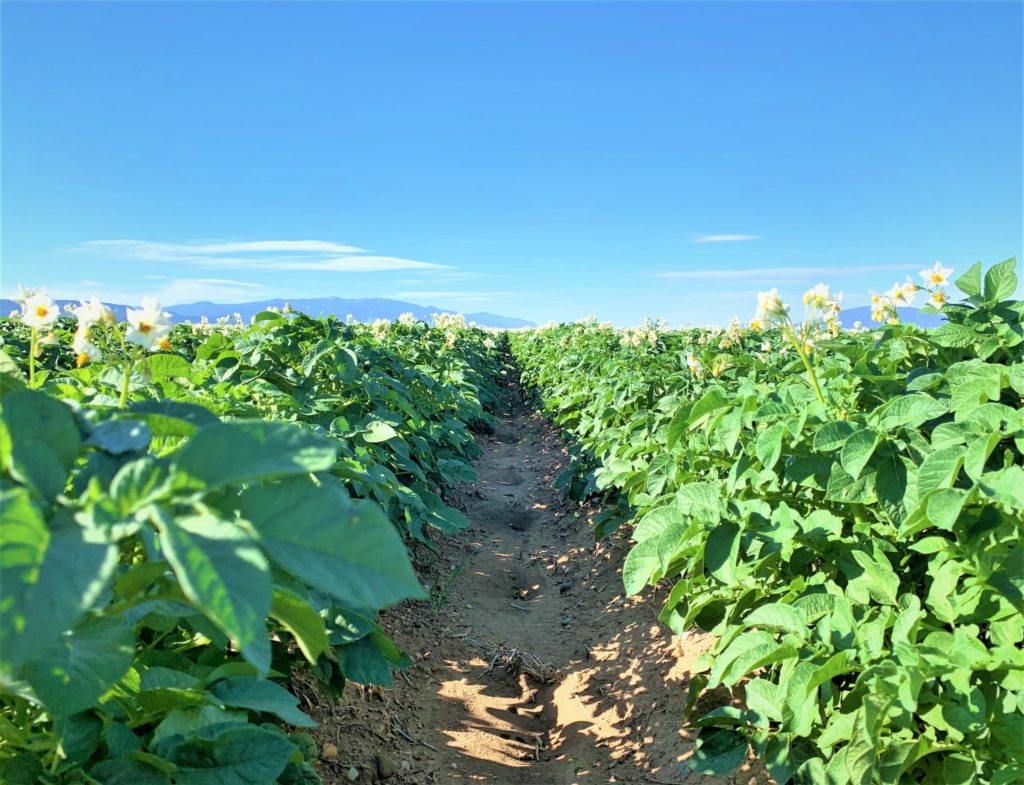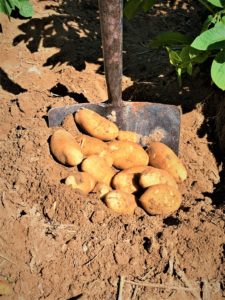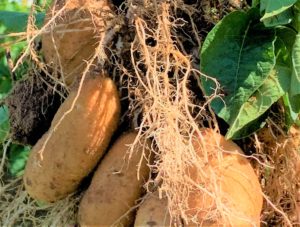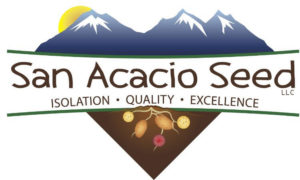
Clean Seed: Essential for Quality Production
{Sponsored} In the battle against disease, clean seed is the best way to start the season strong. The benefits of using clean certified seed are numerous, from reducing the use of chemicals to increased yield and quality.
San Acacio Seed, LLC (SAS) was formed with the goal of creating a seed supply of the highest quality for growers in the San Luis Valley and neighboring states.
In 2016, two seed growing farms, Price Farms, LLC and Salazar Farms partnered with a successful commercial farm, Three S Ranch, to form SAS. The pillars that the group created to ensure the highest quality seed production are: isolation, top level management for the farm, a rigorous sanitation program, adoption of the

best pest management strategies and evaluation of new varieties. The SAS farm is surrounded by desert with primarily alfalfa and small grains on neighboring farms. There are no commercial potato operations in the vicinity. The geography of the region provides the type of isolation perfect for a seed potato farm.
The husband-and-wife team of Amanda and Braydon Wakasugi manage the farm on a daily basis. Braydon runs the mechanical part of the farm and Amanda the administrative and overall planning. LeRoy Salazar, formerly owner of the consulting company, Agro Engineering, and current owner of Salazar Farms, provides technical and management oversight as needed. The three owner farms meet to provide support as needed to SAS. Agro Engineering provides pest management, fertility, plant nutrition and irrigation advice to the farm on a weekly basis during the growing season.
Pre-season activities include soil sampling for fertility, nematode, scab and other potential issues. In-season practices include a pest monitoring program and application of crop oils every 4 to 6 days along with early kill dates to avoid late season diseases vectored by increased aphid populations. Other chemicals and strategies are applied as needed.
SAS focuses specifically on producing primarily Field Generations 3 and 4 of red, yellow and russet tablestock varieties; they currently and frequently evaluate new varieties for plant vigor, yield, quality, storability and other factors important to commercial operations. The collective team at SAS has over a combined century of experience growing potatoes (both seed and commercial). Salazar Farms primarily focuses on early generation seed and provides the base seed stock for San Acacio Seed.
 Sanitization is a top priority. “We take every precaution we can to keep (our seed) clean,” said Braydon Wakasugi, who manages San Acacio Seed with his wife, Amanda. This includes disinfecting tools, implements, and anything else that might come into contact with the plants and soil. It also means taking care to disinfect all equipment between all fields, lots and varieties in case of any problems.
Sanitization is a top priority. “We take every precaution we can to keep (our seed) clean,” said Braydon Wakasugi, who manages San Acacio Seed with his wife, Amanda. This includes disinfecting tools, implements, and anything else that might come into contact with the plants and soil. It also means taking care to disinfect all equipment between all fields, lots and varieties in case of any problems.
The fields undergo visual field inspections throughout the growing season. During the summer, PCS inspectors go into the field and inspect for diseases, and in winter, all the seed undergoes winter tests which includes visual and tissue sampling.
Vine desiccation at about 90 days — prior to any high aphid flights that could otherwise vector diseases — is a crucial part of the seed program at SAS combined with an early harvest. Seed is then placed into state-of-the-art storage facilities that have been triple rinsed, washed and sanitized prior to product touching the floor.
Monty Smith runs Three S Ranch with partners Cole Wakasugi and Jared Smith. It has both a commercial potato growing operation as well as a fresh pack operation. Smith says the risks of using common seed are high. “Planting common seed or non-certified seed that may have some virus or other disease means growers are really playing Russian roulette. We’ve found using good clean certified seed gives a yield and quality advantage, which is extremely important at our fresh pack operation. This is one of the reasons that we wanted to partner with two good seed growers so that together we could provide ourselves and others with a consistent high quality seed supply,” Smith said.
Ultimately, SAS aims to produce the highest quality seed possible using experience, isolation and teamwork. “The team, the partnership down to the Wakasugis’ management abilities, to the full-time employees and the work they do, the whole system just works really well for us,” Smith said.
With disease readings consistently as some of the lowest in the country for the varieties they grow, farm manager Amanda Wakasugi says SAS is now shipping seed for russet, red and yellow varieties across the U.S.
To learn more about San Acacio Seed, visit sanacacioseed.com.

© 2021 San Acacio Seed, LLC














